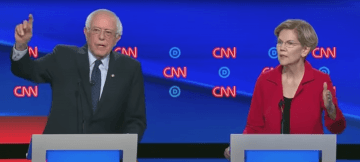 Gabriel Winant in n+1:
Gabriel Winant in n+1:
First formulated by Barbara Ehrenreich and John Ehrenreich in a pair of essays in the journal Radical America in the late 1970s, the idea of the “professional-managerial class” was originally part of an attempted materialist explanation of the political stability of American capitalism in the 20th century, and in particular the failure of the New Left to overthrow it. While industrial capitalism had liquidated the 19th-century middle class, much as Marx had predicted, society had not subsequently polarized into two hostile camps. Instead, the “monopoly capitalism” that evolved in the 20th century—the bureaucratic, administered, managerial system that replaced the entrepreneurial chaos of Victorian laissez-faire—had thrown up a new middle class, whose purpose was to supervise the accumulation process and keep the unruly proletariat in line: researchers and engineers to transform the production process; teachers, doctors, nurses, and managers to sculpt, maintain, and control the workforce; cultural workers to produce commercialized mass entertainment and ideology, displacing the pathologized pleasures of the ghetto; social workers and lawyers to deal with the ensuing social problems when people deviated from this disciplinary grid.
In the early years of the 20th century, the professions emerged in their modern forms, establishing uniform standards of practice and conduct in all these fields. The new professionals were in general politically progressive, seeing their purpose as the renovation of American democracy and the modernization of conditions of work and life, in keeping with the momentous social and technological changes that had remade the world.
More here.
